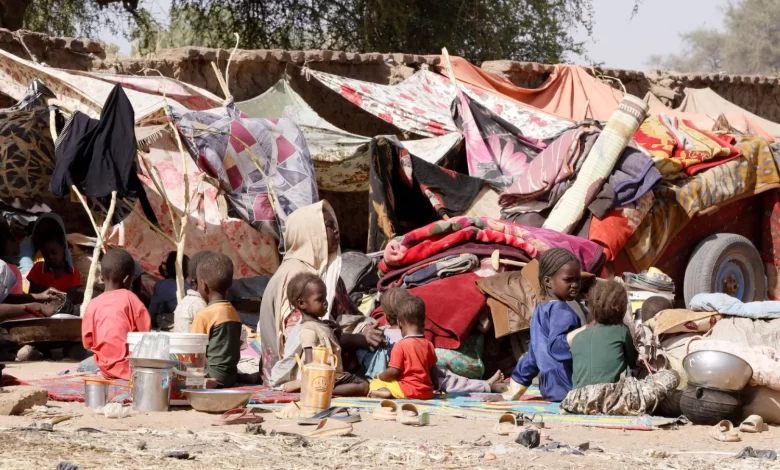Due to Funding Shortages… World Food Programme Warns of Aid Cuts in Sudan

The World Food Programme (WFP) warned on Friday that it is facing a funding shortfall that could affect its ability to support those suffering from severe food insecurity in Sudan within weeks, as donor countries continue to reduce their contributions to humanitarian programs, according to Reuters.
The UN-affiliated program stated that it faces a funding gap of approximately $698 million out of the $800 million it requested from donors to assist seven million people from May to September.
The WFP warned that it could face shortages of grains, pulses, and ready-to-eat meals starting in May, as donor nations increasingly scale back funding for humanitarian operations.
It noted that food rations in areas at risk of famine have already been reduced to 70% of the usual allotment.
Samantha Chaterjee, Emergency Coordinator for WFP in Sudan, told reporters via video link from Port Sudan:
“We emphasize the need to ensure the flow of funding at a very critical time as we enter the rainy season and the hunger season in Sudan, amid escalating conflict and increasing displacement.”
War broke out in Sudan in April 2023 due to a power struggle between the army and the Rapid Support Forces (RSF), displacing millions.
The WFP said it is mobilizing support for those in need across the country, including around 450,000 people who fled from Zamzam camp in North Darfur after it was taken over by RSF earlier this month.
The program added that it assisted nearly four million people across Sudan in March — the highest monthly figure since the conflict began — and that it is now able to reach more areas after overcoming bureaucratic hurdles and security risks.
More aid trucks are expected to arrive in the coming days, the WFP said.
Meanwhile, the World Health Organization (WHO) announced Thursday that the world’s only research center for mycetoma — a contagious tropical disease that particularly affects marginalized populations — has been destroyed in Khartoum due to the ongoing war in Sudan.
The WHO’s Sudan office told AFP:
“The Mycetoma Research Center in Khartoum has suffered severe damage due to the war and has been largely destroyed.”
The war has killed tens of thousands and displaced 13 million people, causing what the UN describes as the largest humanitarian crisis in modern history, with no end in sight. It has also led to the collapse of the country’s healthcare system.
Footage from the research center shows extensive damage, including collapsed ceilings, overturned shelves, and scattered documents.
Ahmed Fahal, founder of the center, said: “We lost all the contents of our biological banks, which held data going back over 40 years,” describing the situation as “heartbreaking.”
Health authorities have been unable to access the site, preventing any assessment of the damage, according to the WHO.
The center, established in 1991 under the University of Khartoum, was the only one of its kind globally dedicated to studying mycetoma. It treated around 12,000 patients annually, according to its founder.
In 2019, the center conducted the world’s first clinical trial for the disease, with support from WHO and the Sudanese government. A temporary clinic in Kassala, eastern Sudan, has since treated 240 patients.
Another medical center has reopened in the village of Wad Onsa in southeastern Sudan. Both facilities are supported by the Ministry of Health but face significant funding challenges, according to WHO.
Mycetoma, caused by bacteria or fungi found in soil or water, can lead to bone destruction. In 2016, WHO classified it as a “neglected tropical disease,” primarily affecting underprivileged communities, including farmers, laborers, and herders in developing countries.



